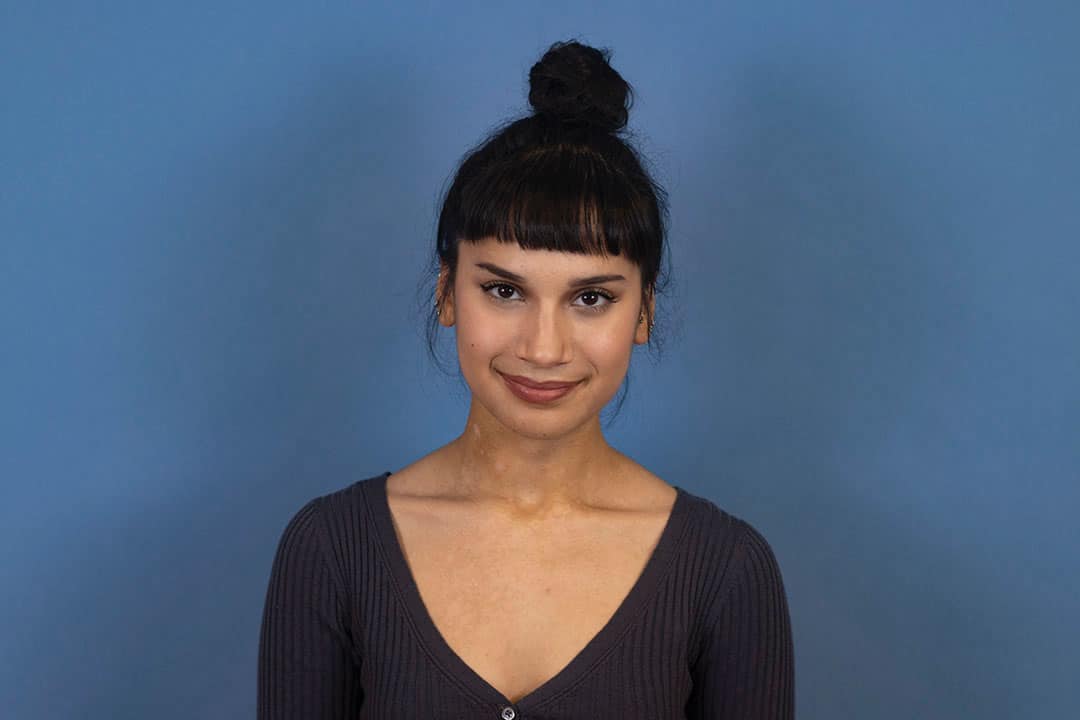When I first started writing for The Varsity, I was nothing more than a scrappy, doe-eyed writer whose only prior bylines were, embarrassingly, on Wattpad. Arts & Culture was the section that welcomed me with open arms, and I planned on staying there for the remainder of my career at the paper. The first article I ever wrote was a personal reflection, which quickly became my specialty. Throughout my time in Arts & Culture, however, I was given the opportunity to explore all avenues of writing.
I first talked to the current Arts & Culture editor, Alexa DiFrancesco, on March 12, 2021, when she responded to an Instagram callout I made. Yes, I still remember the exact date — that’s how much of an impact she’s had on my life. By the time that elections for The Varsity’s masthead rolled around, we had already become best friends despite the fact that we were running for the same position on the masthead.
Evidently, I did not win that election. Instead, Alexa took me on as her associate, and what I gained from that was worth so much more than any masthead position I could’ve had.
As such, to reflect on the past volume alone wouldn’t have been representative of the Arts & Culture section. We had to do it the same way we had done everything in Arts & Culture — together.
Sky Kapoor: Tell me how this year went for you.
Alexa DiFrancesco: This year was great. Witnessing the length of work that contributors will put into making something that they’re proud of was incredible. For example, sometimes articles got cancelled for the week ahead, and so I would dig into the content I had planned for the week after that.
Contributors were willing to Zoom call me or edit together to make those articles happen. Writing for The Varsity is volunteer work — they don’t owe me their time or energy. They don’t have to revise. They can just say, ‘Oh, I’m bringing this somewhere else.’
SK: It’s good that Arts & Culture went the way you wanted it to. I know you wanted to publish some controversial stuff, and you made that happen.
AD: It doesn’t seem controversial in my mind. I don’t even know what you’re referring to. I understand why people may think, ‘Why am I reading this in a newspaper?’ but at the same time, these stories are happening in the world around us. They take courage to write — I wouldn’t feel comfortable writing them myself. What makes Arts & Culture so incredible is that people are willing to put it all on the line and share their stories.
SK: I think that Arts & Culture has been very arts and culture-y this year. But I think that the content has been diverse.
AD: I hope so. These are topics which are affecting certain members of the U of T community. So why wouldn’t I include them if they’re happening?
SK: The trust that people put in us to share those stories is incredible, too.
AD: Our articles go through so many stages of editing. There’s so many examples where we’ll change a word here and there. A word can make such a big difference. I’m not saying that we’ve been perfect at preserving writers’ voices — we haven’t been. But I study creative writing, so I know what it’s like to write something, whether it be an article or a poem or a novel, and you care about every single word. The faith that contributors put in us to maintain their voices is incredible.
SK: Arts is a really special section.
AD: It is so special. I’m surprised at how many people let us explore their creative projects, too. For example, this issue, we’re covering Cara Connors’ comedy show. We’ve covered the Toronto International Film Festival. We interviewed Ana Golja at the beginning of the year. Recently, we interviewed Nathalie Bibeau.
SK: What were some of your favourite articles to publish?
AD: This is like choosing between children, but some of my favourites were Vanessa Mabelle’s ‘The internet capitalizes from mocking Black women — and we’re letting it’, Aissatou Odia Barry’s ‘A reflection on being Black and neurodivergent’, Madeline Szabo’s ‘Help! There’s a rock in my vagina’, Cherry Zhang’s ‘A deep dive into the concealed death of Ontario’s famous prognostic groundhog’, and your own ‘Maybe it isn’t just Western University — maybe it’s campus party culture.’
SK: There’s something about getting to read people’s stories. When I edit articles, I think, ‘This is something I would want to do with my life.’
AD: I’m proud of this year. In 10 years, I can’t wait to show my kids all of the articles.
This interview has been edited for length and clarity.


